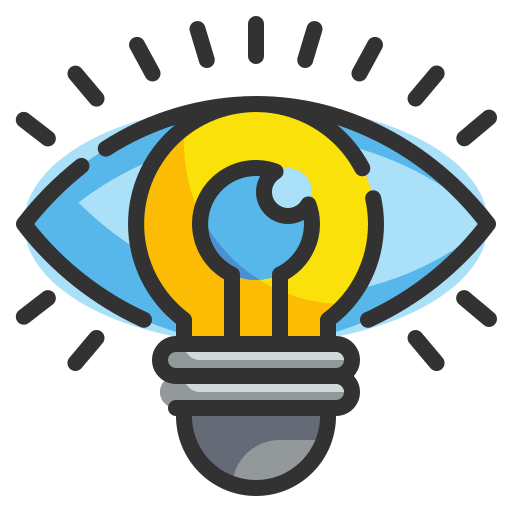Clinical pharmacology is the science-based study of how drugs affect humans, with a focus on their safe and effective use in patients. It bridges the gap between basic pharmacology and clinical practice by investigating drug actions in the human body. This includes both pharmacodynamics i.e. how drugs work and pharmacokinetics i.e. how they are processed by the body.
The field also examines drug interactions and potential adverse effects through clinical trials and post-marketing surveillance. Any identified adverse effects are reported to regulatory authorities, ensuring compliance with established safety standards.
Fellowship in Clinical Pharmacology in India is a great opportunity for healthcare professionals to gain specialized expertise in drug development, clinical trials, and pharmacovigilance.
| Feature | Details |
|---|---|
| Program Name | Fellowship in Clinical Pharmacology |
| Program Level | Postgraduate Fellowship |
| Duration | 12 Months |
| Learning Mode | Online live classes + clinical training at a multispecialty hospital |
| Eligibility | Pharm D / M.Pharm / B.Pharm / D.Pharm graduates / Final-year pharmacology students / MBBS / MD / FNB / DNB / Medical residents / Final-year MBBS students / AYUSH practitioners |
| Curriculum Focus | Principles of pharmacodynamics and pharmacokinetics, drug–receptor interactions, mechanisms of action, drug metabolism and clearance, variability in drug response, cardiovascular and neuropharmacology, analgesic and antimicrobial therapies, therapeutic drug monitoring, biomarker applications, clinical trials, GCP, and regulatory frameworks. |
| Training Structure | Expert-led online sessions, case-based learning, and hospital-based clinical training |
| Faculty | Experienced clinical pharmacologists and physicians with clinical and academic expertise |
| Study Resources | Recorded lectures, case studies, presentations, clinical guidelines, and digital learning modules (SCORM packages) |
| Certification | Fellowship completion certificate with CPD certification |
| Career Opportunities | Clinical settings – hospitals and clinics. Non-clinical settings – pharmaceutical companies, clinical research organizations, regulatory bodies, and academic institutions. |
| Skill Development | Rational drug selection, dose optimization, interpretation of therapeutic response and adverse effects, individualized prescribing across patient populations, safe polypharmacy management, interaction prevention, monitoring efficacy and toxicity in special populations, understanding research methodology, and ethical drug evaluation. |
| Industry Relevance | Designed as per current clinical guidelines and healthcare standards |
| Flexibility | Suitable for working medical professionals |
The Fellowship in Clinical Pharmacology offered by MediCOLL Learning provides in-depth knowledge of pharmacodynamics and offers hands-on training to ensure participants are well-versed in the key principles of both pharmacodynamics and pharmacokinetics.
This Online Fellowship in Clinical pharmacology program covers fundamental and molecular pharmacology, including the study of various drugs such as emergency medications, agents acting on the sympathetic and parasympathetic systems, toxicology, and drug action at different sites in the body.
The fellowship presents an excellent opportunity to advance in the field of pharmacology and contribute meaningfully to drug development and healthcare policy-making. Ideal for physicians, pharmacists, and researchers, this program promotes evidence-based decision-making to enhance patient care and ensure the safe and effective use of medications across various clinical environments.
The UK CPD accredited fellowship in Clinical Pharmacology is designed in a format to strengthen understanding of concepts like drug mechanisms, pharmacokinetics, and rational prescribing practices. Clinical pharmacology plays a crucial role in safe medication use in patients with comorbidities, polypharmacy, or altered drug metabolism. This fellowship provides specialized training and supports clinicians who wish to improve in prescribing and drug safety monitoring.
The program is delivered under UK CPD approved online fellowship programs which ensure clearly defined learning objectives and systematic academic progression. The curriculum integrates pharmacological science with practical clinical application that help doctors connect theoretical knowledge with real-world prescribing decisions. The CPD accepted fellowship adds value and credibility to the one pursuing it. The structure helps clinicians apply pharmacological principles more precisely in day-to-day clinical decision-making.
This learning program functions as an accredited medical fellowship for working doctors which allow structured professional development alongside clinical responsibilities. The training strengthens evidence-based prescribing and enhances confidence in managing adverse drug reactions and interactions. It also supports safer polypharmacy practices in special population like elderly and high-risk patient groups.
The fellowship contributes toward International medical fellowship certification through recognized CPD credit points. These credit points support career opportunities and continuous professional development for the doctors in clinical pharmacology practice. The CPD accredited fellowship showcases formal academic training and updated therapeutic knowledge which adds value for career progression in hospital practice, research settings, and regulatory or pharmaceutical roles.
Upon completion of the programme learners will be able to:
After completing successfully the fellowship in clinical pharmacology, doctors are exposed to a wide range of career opportunities in clinical and non-clinical settings. Clinically, the doctors can work in hospitals and clinics. Non clinically they can work in pharmaceutical companies in roles such as regulatory and safety, clinical research organizations and academic institutions. The fellowship helps in understanding better the drug interactions and pharmacokinetics which promotes better patient outcome. Additionally, it acts as a platform for advanced training in clinical pharmacology.

First hand Clinical Training: Gain hands-on experience under the supervision of an experienced clinical pharmacist in a super speciality hospital setting.

Hybrid Learning Options: The program offers adaptable schedules to support working professionals.

Expert Medical Faculty: Sessions are led by medical experts with years of clinical and academic experience.

Global Acknowledgement: Accredited by CPD, ensuring international recognition of the fellowship.
Module 1: Drug Chemistry
Basic and Molecular Pharmacology
Pharmacodynamics
Module 2: Drug activity towards receptor
Introduction to Mechanisms of Specific and Non-specific Drug Action
Agonists and antagonists
Partial Agonists and Inverse Agonists
Module 3: Drug response
Drugs Affecting Transmembrane Signalling
Nuclear Drug Receptors
Enzymes as Drug Targets Including Anticholinesterases
Enzyme Induction and Inhibition
Module 4:Tachyphylaxis
Unwanted Drug Effects
Tolerance & Tachyphylaxis
Drug Interactions
Module : 5 Pharmacokinetics: Part-1
Introduction to pharmacokinetics and modelling
Pharmacokinetics principles in different patient groups
Pharmacokinetics of intravenous anaesthesia
Absorption and Bioavailability
Distribution, Protein Binding and Body Compartments
Inhalational drug administration
Pharmacokinetics: Elimination
Module : 6 Pharmacokinetics: Part-2
Drug Metabolism and Excretion
The Cytochrome P450 system
Two- and three-compartment models
Clearance and volume of distribution
Target controlled infusions
Interindividual Variation in Drug Response
Module : 7 Anaesthetic Action of drugs
Halogenated Volatile Agents and Unwanted Effects of Volatile Agents
Nitrous oxide and xenon
Mechanism of General Anaesthetic Action
Benzodiazepines & Sedative agents
Propofol
The Barbiturates
Etomidate
Ketamine
Properties of an ideal intravenous induction agent
Local Anaesthetic Agents
Module 8: Analgesic Action of Drug
Simple analgesia: aspirin and paracetamol
Non-Steroidal Anti-Inflammatory Drugs (NSAIDs)
Opioid drugs: general properties and mechanisms of action
Morphine and other opioids
Opioids with weak and partial agonist activity and opioid antagonists
Module 9: Neuromuscular
The Neuromuscular Junction & the Nicotinic Acetylcholine Receptor
Succinylcholine
Non-depolarizing muscle relaxants: general properties
Aminosteroid neuromuscular blocking agents
Benzylisoquinolinium muscle relaxants
Reversal of neuromuscular blockade
The ideal short acting muscle relaxant
Module 10: Neuropharmacology
The Autonomic nervous system
Drugs and the Sympathetic Nervous System
Endogenous catecholamines
Drugs and the Parasympathetic Nervous System
Module 11: Cardiovascular System
The Cardiovascular System and Sites for Drug Effects
Inotropes and Vasoconstrictors
Drugs used in Ischaemic heart disease
Classifications for antiarrhythmic drugs
Clinical Use of Antiarrhythmic Agents
Drugs to produce intraoperative hypotension
Therapeutic Antihypertensives
Module 12: Hematology
Anticoagulants
Anti-platelet Agents
Thromboprophylaxis and thrombosis
Fluids for volume expansion
Module 13: Drugs classification: Part-1
Antihistamines
Drugs acting on the respiratory system
Drugs used in the treatment of acute asthma
Drugs acting on the GI tract
Antiemetic drugs
Diuretics
Drugs acting on the uterus
Module 14: Drugs classification: Part-2
Principles of actions of antimicrobial drugs
Antimicrobial Stewardship for Community Pharmacy
Antimicrobial drugs
Anti fungal and antiviral drugs
Antiepileptic drugs (AEDs)
Antidepressants/drugs affecting mood
Anti-Diabetic Therapy: NIDDM & Insulin Therapy in Diabetes Mellitus
Corticosteroids; Thyroxine and Drugs Used in Thyroid Disorders
Effects of Drugs on the Eye and Vision; Includes Intra-ocular Pressure
Module 15: Substances
Social drugs: Alcohol
Social drugs: Non-legal Drugs
Social drugs: Tobacco
Module 16: Resources for Pharmacy Staff
Managing sepsis
Prudent use of Antibiotics
Safe prescribing in renal impairment
Safe Use of Insulin
Symptom management for the dying adult
Module 17: Pharmacy professionals
Drug management of breathlessness
Drug management of pain: core knowledge
Management of constipation
Management of nausea and vomiting
Management of seizures
Module 18: Basic Science: Pharmacology
Anaesthetic Agents
Inhalational anaesthetic agents
Neuromuscular blocking agents
Local Anaesthetic Agents
Drugs Used in an Emergency
At MediCOLL Learning, we understand the challenges and support required on the journey towards excellence in a medical career. Our mission is to help you enhance your knowledge, sharpen your skills, and build the confidence needed to thrive in the ever-evolving and competitive medical field.
Here’s why choosing MediCOLL Learning can be your stepping stone to success.

Designation: Pharm D., Ph.D (Respiratory Allergy )
Dr. Swamita Arora is a Ph.D. in Respiratory Allergy and a postgraduate in Pharmacology, with over 17 years of research and teaching experience. She specializes in immunology, clinical pharmacology, and toxicology, with a focus on pulmonary infections, CVDs, hepatotoxicity, and neurological disorders. A certified expert in clinical research, she has also worked as a scientific writer for global pharmaceutical companies. Currently serving on the IAEC protocol committee, she contributes to both regulatory and academic advancements. At MediCOLL, she is a faculty for Clinical Pharmacology, known for integrating research depth with practical insights.
Read MoreThe program spans 1 year, comprising 10 months of online learning followed by 2 months of hands-on clinical training at designated hospitals or healthcare centers.
The program is open to Pharm.D, M.Pharm, B.Pharm, and D.Pharm graduates, along with final-year students specializing in Pharmacology/MBBS/MD/Ayush Doctors with relevant experience
Fellows can pursue careers in clinical research, pharmaceutical companies, regulatory bodies, hospital pharmacies, or academia. Some may also take leadership roles in pharmacovigilance or drug safety.
Yes, MediCOLL Learning collaborates with reputed global institutions and healthcare partners such as eIntegrity, CPD, RCP, NHS, and Mangalayatan University to offer this fellowship
The online phase includes: - Live and recorded video lectures - Case-based discussions - MCQs for evaluation - Access to study materials via the Learning Management System (LMS)
During the fellowship, participants receive comprehensive training in clinical settings. The program includes structured coursework and hands-on clinical training. Key areas of focus typically include drug development, pharmacokinetics, pharmacodynamics, clinical trial design and execution, as well as personalized medicine. This well-rounded experience equips fellows with the skills and knowledge needed to excel in academic, clinical, and industry roles.
Yes, the hybrid format allows working professionals to manage the online component at their convenience, making it ideal for practicing doctors or those preparing for postgraduate exams. The fellowship also strengthens your application for postgraduate studies or international licensing exams.
Learners receive: - Guidance from academic mentors - Doubt-clearing sessions - Technical support for the learning platform
For any queries, feedback, or suggestions, you can reach out to the MediCOLL Learning support team through our official email, phone number, or support portal provided on the website. A team member will be assigned to assist you.
Clinical training is a hands-on learning phase where fellows gain practical experience in real-world patient care settings under supervision. It is conducted at partner hospitals or family clinics in selected cities. You can choose a location based on availability and your preference.
Clinical Fellowship is a training program pursued after medical graduation or post-graduation to gain clinical knowledge in a specific specialty, for example Fellowship in Clinical Pharmacology. This fellowship helps medical professionals to understand the rational use of medicines in clinical practice. It supports skill development in pharmacotherapy and patient safety, while allowing doctors to continue clinical practice.
Online Fellowship in Clinical Pharmacology is approved and recognised in India and Abroad. The fellowship is affiliated with prestigious universities like the NHS (UK), eIntegrity, University of Liverpool and Mangalayatan University. It is also CPD-accredited and provides additional support for the medical professionals interested to work abroad. The fellowship provides access to a wide range of career opportunities in various clinical settings.
© Copyrights 2025 Medicoll All rights reserved.